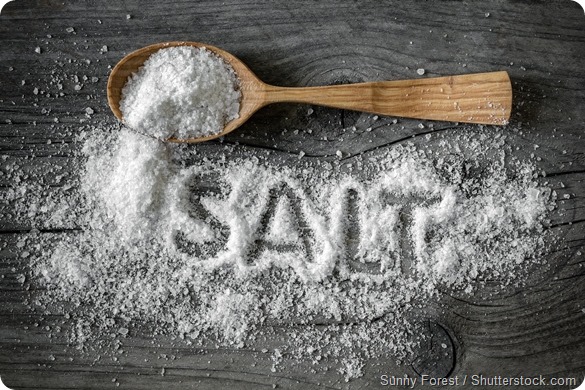Findings from a large, four-year study suggest that an inadequate amount of salt in the diet could increase the risk of poor cardiovascular outcomes and death.
“Low sodium intake does reduce blood pressure modestly, compared to moderate (or average) intake, but low sodium intake also has other effects, including elevations of certain hormones that are associated with an increase in risk of death and cardiovascular diseases,” explains researcher Martin O’Donnell from McMaster University.

Currently, the average daily salt intake is 3.5 to 4.0 grams per day (g/day) but some guidelines are recommending that this should be reduced to 2.3 g/day, says O’Donnell. However, recent studies have raised concerns about the potential effects of a low salt intake on major health outcomes.
As reported in the New England Journal of Medicine, the Prospective Urban and Rural Epidemiological (PURE) study tracked sodium consumption in more than 100,000 adults from 17 different countries over a period of almost four years. The relationship between sodium intake and blood pressure was examined, as well as any association with heart disease, stroke and fatality.
Analysis showed that after a mean follow-up period of 3.7 years, a higher estimated sodium excretion (7.00 g/day or more) was associated with a 15% greater likelihood of a major cardiovascular event or death, compared with an estimated sodium excretion that was in the reference range (4.00 to 5.99 g/day). However, the authors also found that a low estimated sodium excretion, of less than 3.00 g/day, was associated with a 27% greater risk of cardiovascular events and death compared with the reference range.
In an accompanying editorial, distinguished medical professor Suzanne Oparil, from the University of Alabama comments:
This large study does provide evidence that both high and low levels of sodium excretion may be associated with an increased risk of death and cardiovascular-disease outcomes
“These provocative findings beg for a randomized, controlled outcome trial to compare reduced sodium intake with usual diet. In the absence of such a trial, the results argue against reduction of dietary sodium as an isolated public health recommendation.”